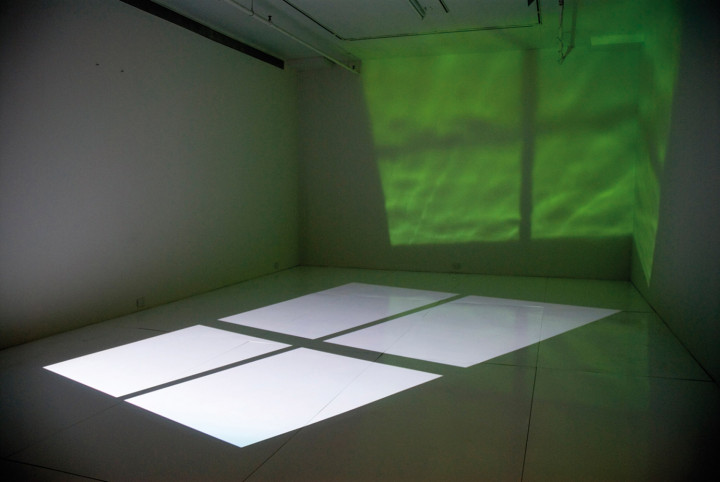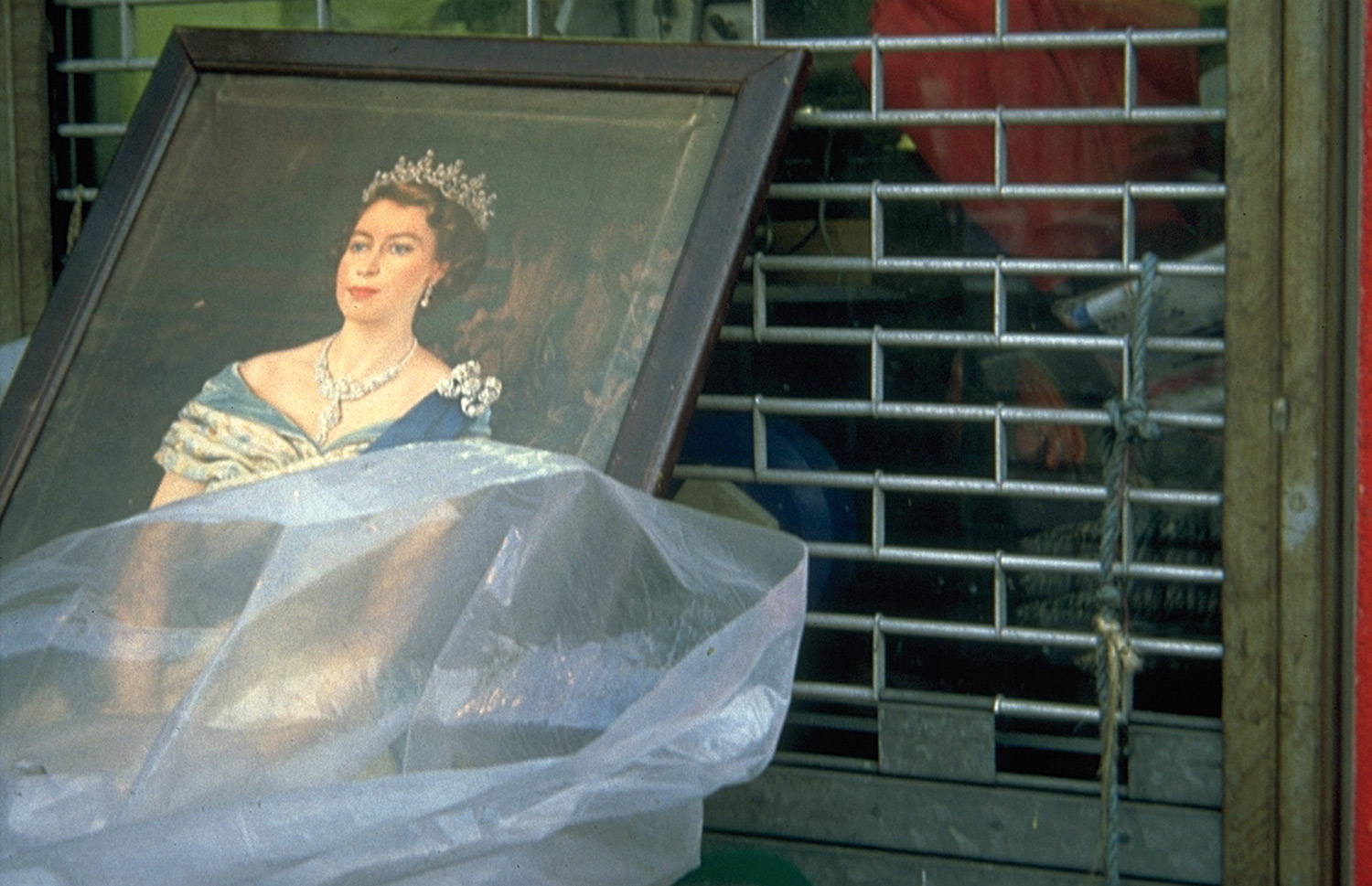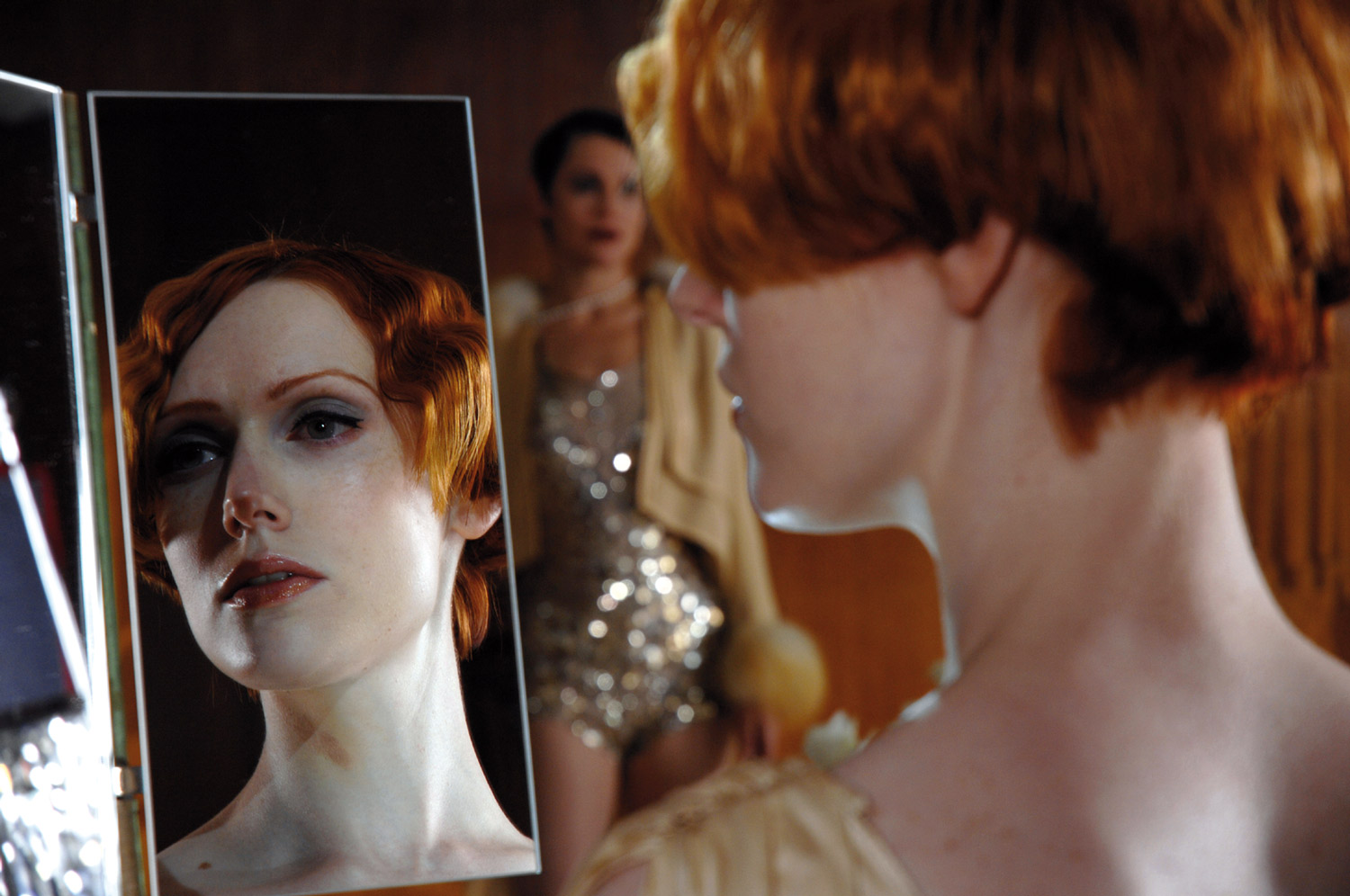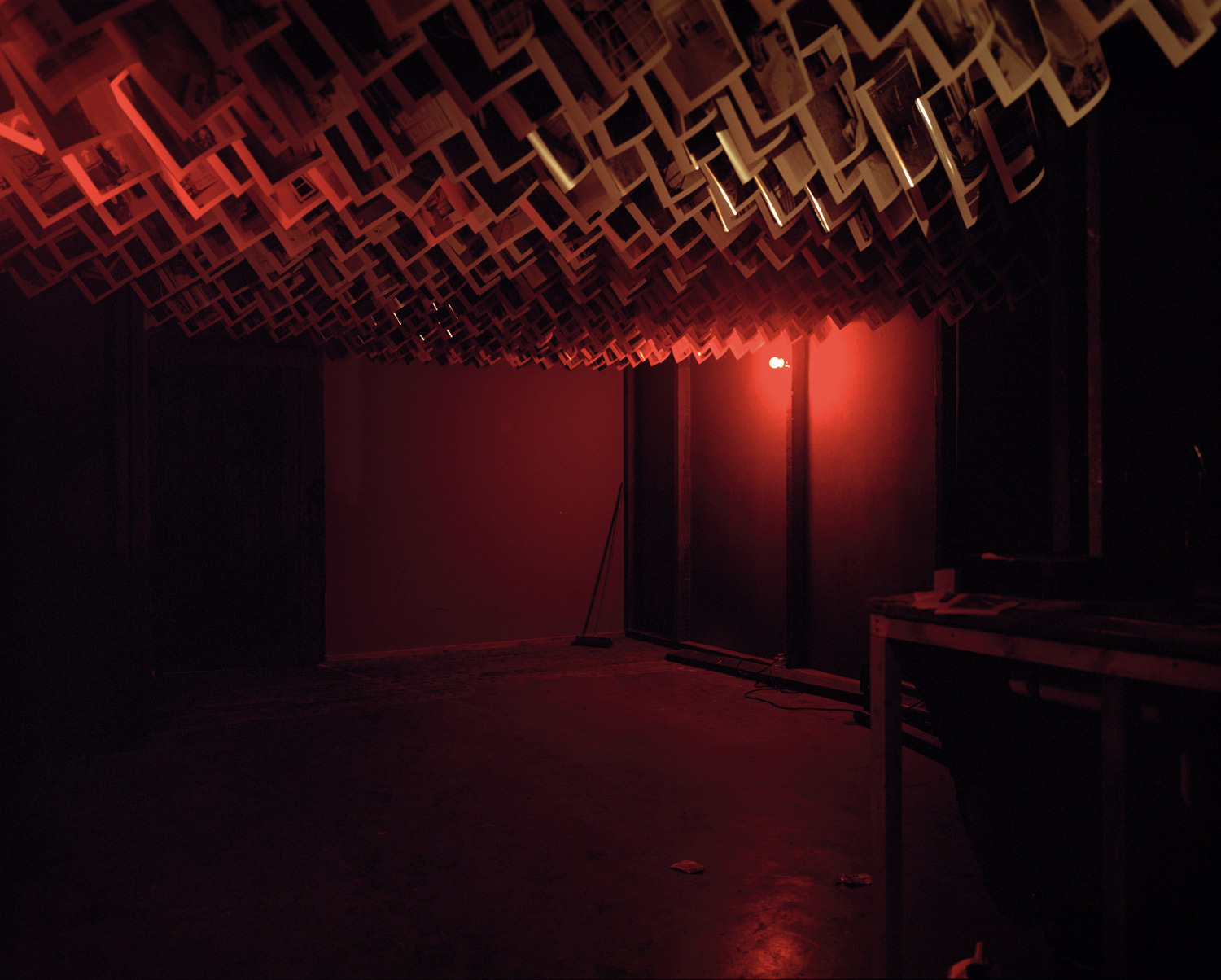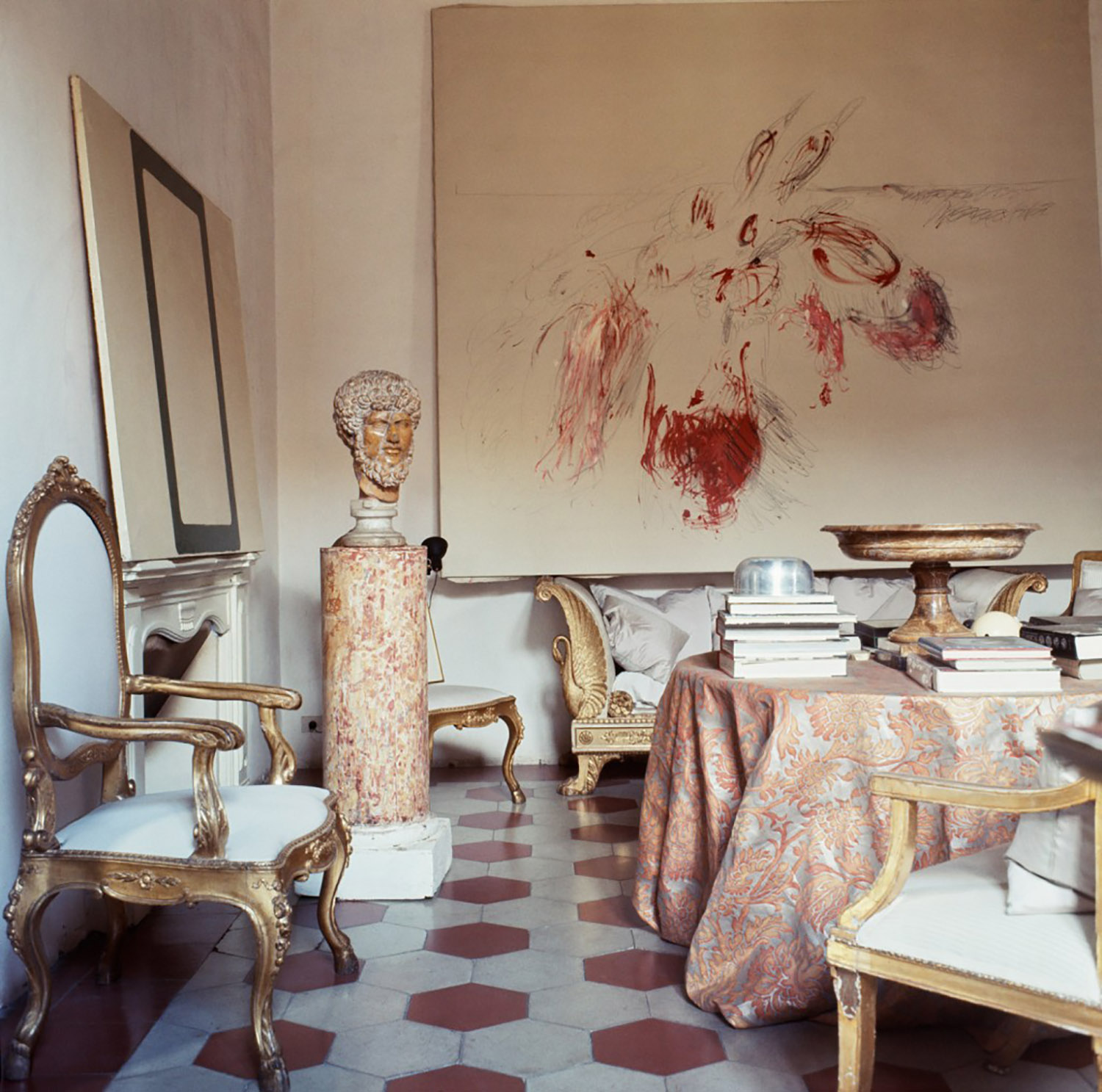
Maurizio Cattelan: You look great.
Paul Chan: Thank you.
MC: Before we start, I would like to give you something.
PC: What is it?
MC: Five minutes of uninterrupted eye contact.
PC: I don’t know what to say…
MC: Think of it as a gift.
PC: I know what to say now. Thank you.
[Five long minutes pass]
MC: How do you feel?
PC: Aroused.
MC: Isn’t that strange, me too!
PC: I don’t think it’s strange. It’s just nice.
MC: Why do you think that happened?
PC: Silence and attention have a way of heightening all the senses.
MC: It’s true. You even look a tad taller.
PC: It might be the new pants.
MC: Should we start? You gave a talk recently in New York at The New School. It was advertised as an artist lecture. A lot of people showed up and I think they expected you to talk about your work and show pictures and videos and so on. But you didn’t do any of that. Instead, you delivered a speech. What was the title again?
PC: “The Spirit of Recession.”
MC: That’s right. You talked about how the global economy is a form of religion and how secularism isn’t secular at all. And how art can be connected to what a recession is in the religion of world economy. Something about art being a lyrical farewell. Is that close?
PC: That’s close.
MC: It was very provocative. People were really upset.
PC: How upset?
MC: There was a fistfight.
PC: No. Where?
MC: After the lecture, two blocks down from the auditorium.
PC: Why were they fighting?
MC: Don’t really know. I was leaving the talk and suddenly found myself in a small crowd of people watching something. And that’s where I saw two young guys punching and grabbing at each other on the sidewalk, screaming about you and something about the economy and art and the recession.
PC: That makes no sense.

Courtesy Greene Naftali, New York.
MC: Fighting never makes any sense.
PC: Did you try to stop them?
MC: No. I just watched.
PC: Did anyone try to stop them?
MC: No one needed to. They got tired after a while and stopped themselves.
PC: Isn’t it nice when things stop themselves? It’s the only form of justice we have left today: when a wrong stops because it is too tired to go on wronging.
MC: Can you elaborate?
PC: Sure. But first, tell me what you did after they stopped fighting.
MC: I went to eat something, I was starving.
PC: Unusually so?
MC: Yes, now that I think about it.
PC: Do you always feel starved after artist talks?
MC: I usually feel confused. But I think it was more the fight.
PC: You were really hungry after watching the fight.
MC: Yes.
PC: Why do you think that is?
MC: I don’t know. Maybe conflict makes me want to eat?
PC: But you didn’t join the fight, you didn’t physically participate, right?
MC: That’s right.
PC: So, watching the fight was strenuous enough to make you feel famished.
MC: Yes, I would say so. It took energy to try to pay attention and make sense of it.
PC: I see. So the hunger was the feeling of having to replenish the energy used in sense-making. But why do you think it took so much energy? You said you were starving, right? Or is that part of your dramatic flair?
MC: Drama does not interest me. But I wasn’t exaggerating.
PC: So why so much energy expended just to watch a fight?
MC: Why are you so interested?
PC: It’s a good question. Maybe I can answer you once this is over.
MC: That’s a very Delphic answer.
PC: I don’t know what Delphic means. Does it have something to do with dolphins?
MC: No. It means something that is needlessly obscure and a bit mystical.
PC: In that case, I disagree with you.

MC: Maybe we need another five minutes of eye contact.
PC: Thanks, but no thanks. I’m still aroused from the last one.
MC: Do you still want to know?
PC: Sure.
MC: When I look at something that interests me, or intrigues me, I can feel myself following its movements or the way it plays.
That’s how something becomes expressive, when it invites me into itself so that I can follow its course, without telling me where I’m supposed to end up.
And when I choose to do it, the following takes up a lot of energy.
PC: It’s as if once you became interested in watching the fight, you stay interested by internalizing the movement and shape of the fight, to figure it out, or at the least, to take pleasure in it.
MC: Something like that, yes. But there was no pleasure in it.
PC: Why did you keep watching then?
MC: I don’t see physical fights over art everyday. It caught my attention. I was curious.
PC: Someone wrote once, “curiosity is the pleasure principle of thought.”
MC: Who wrote that?
PC: Hillary, I think.
MC: You’re joking.
PC: Maybe it was Napoleon, I don’t remember. Whatever the case, you followed the fight from the inside, so to speak, drawing from your sense experience an inner expressive model of what was happening right in front of you. And all that energy you needed to replenish by eating was used because it became in.
MC: That is the nature of thinking.
PC: It’s very physical, isn’t it? The mind is a muscle.
MC: You’re saying even though I was not physically in the fight, the fight was physically inside me?
PC: To imagine the course of experience outside ourselves unfolding as if it was the course of our own inner life, without succumbing to the easy graces of pre-determined concepts, is when thinking becomes most reckless and alive.
MC: Are you saying that thinking is like a form of parroting the world?
PC: Yes, but without the bird and the funny voice. Some people call it mimesis.
MC: Do these people have college degrees?
PC: The ones who use it poorly, yes.
MC: How does this relate to your work?
PC: I’m not sure it does. But drawing more generally from all this, maybe we can say that art is the emphatic shape of thinking experience made by no-body.
MC: Can you talk more about this?
PC: Of course.
(Maurizio’s note: At this point in the conversation, Paul says he has to make a call from the payphone outside and excuses himself from the table at the ESPN zone sports bar and restaurant where we are talking. He never comes back. I receive an email two days later from Paul thanking me for the conversation and the nice lunch. I reply that the conversation had just started and that it would be great if it continued at a sports bar of his choosing. The email bounces back, as do others I send later. And I have no phone number for him. The interview is printed as is. I would like to extend and continue this conversation with you, Paul, if you like. We can talk about any number of things that have nothing to do with thinking or fights. I know you are also fond of animals and basketball. My email address is maurizioisatwork@aol.com. Email me and let’s keep talking!)

